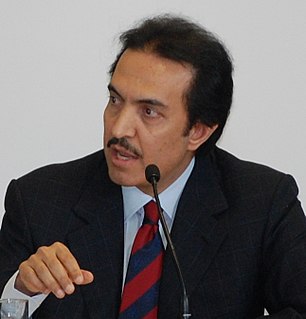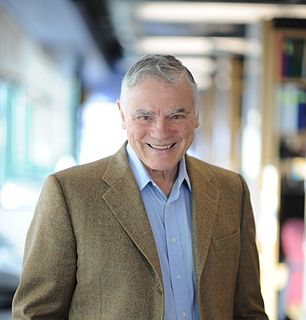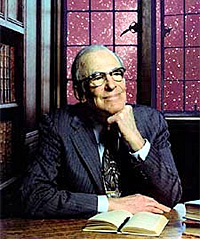A Quote by Seth Shostak
It will be the mother of all telescopes, and you can bet it will do for astronomy what genome sequencing is doing for biology. The clumsy, if utilitarian, name of this mirrored monster is Large Synoptic Survey Telescope, or LSST. You can't use it yet, but a peak in the Chilean Andes has been decapitated to provide a level spot for placement.
Related Quotes
The question is, are there useful things that we can do with the results of a genome sequence that would bring benefit? And the answer is, today, should the majority of people go and have their genome sequenced? Probably not. But are there particular circumstances in which genome sequencing is really helpful? Yes, there are.
It is now widely realized that nearly all the 'classical' problems of molecular biology have either been solved or will be solved in the next decade. The entry of large numbers of American and other biochemists into the field will ensure that all the chemical details of replication and transcription will be elucidated. Because of this, I have long felt that the future of molecular biology lies in the extension of research to other fields of biology, notably development and the nervous system.
If there is a spot where you have dictatorship, where people are not free, people are not satisfied, they do not find food and shelter, they are under the poverty level, this is a dangerous spot for the whole world, because those people will move, and they will move to different places. They will be carrying bad feelings towards others.
An important finding is that by determining the genome sequences of an entire family, one can identify many DNA sequencing errors and thus greatly increase the accuracy of the data. This will ultimately help us understand the role of genetic variations in the diagnosis, treatment, and prevention of disease.
Astronomy may be revolutionized more than any other field of science by observations from above the atmosphere. Study of the planets, the Sun, the stars, and the rarified matter in space should all be profoundly influenced by measurements from balloons, rockets, probes and satellites. ... In a new adventure of discovery no one can foretell what will be found, and it is probably safe to predict that the most important new discovery that will be made with flying telescopes will be quite unexpected and unforeseen.
You can put this another way by saying that while in other sciences the instruments you use are things external to yourself (things like microscopes and telescopes), the instrument through which you see God is your whole self. And if a man's self is not kept clean and bright, his glimpse of God will be blurred - like the Moon seen through a dirty telescope. That is why horrible nations have horrible religions: they have been looking at God through a dirty lens.


































